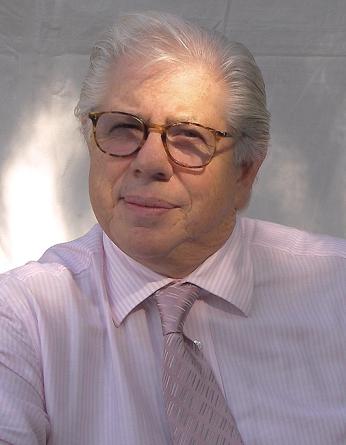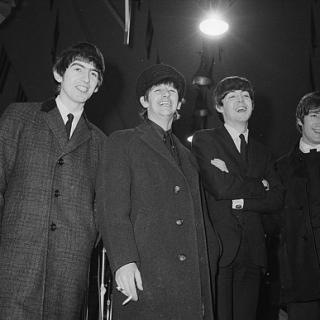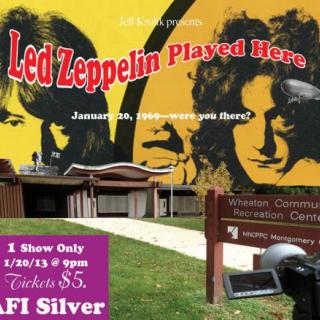When Carl Bernstein Reviewed 'Sgt. Pepper'
It's been over 50 years since the release of the Beatles' groundbreaking Sgt. Pepper's Lonely Hearts Club Band, lauded as the first "concept" album and perennially on critics' lists of the best of all time. There has also been a good deal of recent reflection on the Watergate scandal and the role of Washington Post journalists Carl Bernstein and Bob Woodward, who broke the story that brought down an American president in 1974. But did you know there is a local connection between these seemingly disparate yet historically-significant events?
Carl Bernstein was born on February 14, 1944 in Washington and was raised in Silver Spring, MD. He developed an early interest in journalism and landed his first job at The Washington Star as a copyboy at the age of 16. After finishing high school at Montgomery Blair, he attended classes at the University of Maryland, eventually dropping out to work full-time as a reporter at the Daily Journal in Elizabethtown, NJ. While there he received several awards, eventually attracting the attention of his hometown newspaper, The Washington Post, where he was hired at age 22 in 1966. [1]
As a metro reporter at The Post Bernstein covered a wide variety of topics: police, the courts, city hall, the suburbs, racism and civil rights, and Maryland and Virginia politics.[2] Likely because of his age and interest in the burgeoning counterculture, Bernstein's byline also appears on several "human interest" stories during 1966-1967: "Trippies' Thanksgiving at Dupont Circle,"[3] "Wed-In Bells Ring Out for Peace Couple,"[4] "Hip Paper 'underground' Outrages the Squares"[5] and "Is the Rock Creek Park Be-In a Has-Been?"[6] So it was not too surprising that Bernstein, who later described himself as "something of a music freak"[7] also became an occasional rock critic for The Post, which brings us back again to Sgt. Pepper.
On June 18, 1967, The Post published Bernstein's review of the recently released album, trippily titled "There's Never Been Anything Like the Beatles' New 'Band.'" Though not all contemporary critics "got it" — perhaps most famously the scathingly negative review written by Richard Goldstein in the New York Times — Bernstein's assessment stands up quite well in the light of history. Right from his first few lines Bernstein recognizes the significance of this revolutionary recording:
With "Sgt. Pepper's Lonely Hearts Club Band" Her Majesty's knights in psychedelic armor come to rescue the form, creating the first pop tone poem.
In their latest album, the Beatles have managed to create a musical infinity through a miraculous metamorphosis of dozens of Eastern and Western musical ideas, some centuries old, others from our own era and more than a few from the future.
When combined with John Lennon's perceptive lyrics (and honed wit), the Sgt. Pepper metamorphosis becomes a wildly contemporary continuum—structured pop music with a beginning, middle and end linked by riotous sounds, words, colors, images and musical tension. It is a bit fantastic, and certainly unprecedented.[8]
Bernstein continues with appropriately-colored purple prose throughout the rest of the article, waxing on about the Beatles' use of "harmonic designs, counterpoint and thematic variations," "resonating drone," "early Ringonian percussion" and "Fender electric basso continuo."
Despite the minor misstep of praising John Lennon for the lyrics to "Lovely Rita" and "When I'm Sixty-Four" (they are Paul's songs of course, though keep in mind this was long before the tell-all articles of the 1970s and ‘80s which more clearly demarcated authorship in the Lennon-McCartney songwriting partnership), Bernstein is generally spot-on in his analysis.
His overall record as a rock critic isn't spotless however, it has its ups — high praise for classics by the Rolling Stones, the Band and James Taylor — and seriously misguided thoughts on Iron Butterfly and Led Zeppelin (which he loved and hated, respectively).[9]
Bernstein's passion for the music comes through in all his reviews for The Post — though his opportunities to cover new releases and local concerts declined by the early 1970s. In fact, his last music-related articles focused on audiophile investigations of new technologies such as cassette tapes[10] and a thinner and a supposedly less noisy vinyl disc.[11]
Though his story assignments had become more traditional, Bernstein's interest in rock journalism remained. In fact, he actually applied for a job at Rolling Stone[12] right before he began investigating an obscure break-in at the Watergate Hotel in June 1972 — ironically almost 5 years exactly after the Sgt. Pepper review. One wonders if a certain president would have finished his term while Bernstein was otherwise occupied with Exile on Main Street or Dark Side of the Moon.
Footnotes
- ^ "Carl Bernstein." Biography.com. A&E Networks Television, 28 Oct. 2015. Web. 06 June 2017. <https://www.biography.com/people/carl-bernstein-102815>.
- ^ "Carl Bernstein." Huffington Post. TheHuffingtonPost.com, Inc., n.d. Web. 6 June 2017. <http://www.huffingtonpost.com/author/carl-bernstein>.
- ^ Bernstein, Carl. "Trippies' Thanksgiving at Dupont Circle: High on Calm A Trip to the White House." The Washington Post 15 Jan. 1967: B1. ProQuest Historical Newspapers: The Washington Post. Web.
- ^ Bernstein, Carl. "Wed-In Bells Ring Out for Peace Couple." The Washington Post 16 July 1967: A11. ProQuest Historical Newspapers: The Washington Post. Web. 6 June 2017.
- ^ Bernstein, Carl. "Hip Paper 'underground' Outrages the Squares." The Washington Post 11 Dec. 1966: 3. ProQuest Historical Newspapers: The Washington Post. Web. 6 June 2017.
- ^ Bernstein, Carl. "Is the Rock Creek Park Be-In a Has-Been?: Teeny Boppers From Suburbs Steal the Scene." The Washington Post 28 May 1967: B4. ProQuest Historical Newspapers: The Washington Post. Web. 6 June 2017.
- ^ Bernstein, Carl. "Case for Cassettes: Hassles, Assets, The Dolby Affair: Case for Cassettes: Hassles and Assets." The Washington Post 7 Feb. 1971: H1. ProQuest Historical Newspapers: The Washington Post. Web. 6 June 2017.
- ^ Bernstein, Carl. "There's Never Been Anything Like the Beatles' New 'Band'." The Washington Post 18 June 1967: L1. ProQuest Historical Newspapers: The Washington Post. Web. 6 June 2017.
- ^ McKenna, Dave. "Before He Brought Down Nixon, Carl Bernstein Was A Far-Out Rock And Roll Writer." The Concourse. Deadspin, 31 May 2017. Web. 6 June 2017. <http://theconcourse.deadspin.com/before-he-brought-down-nixon-carl-bern…;.
- ^ Bernstein, Carl. "Case for Cassettes: Hassles, Assets, The Dolby Affair: Case for Cassettes: Hassles and Assets."
- ^ Bernstein, Carl. "Pressing Issue: Surface Noise." The Washington Post 7 Feb. 1971: H3. ProQuest Historical Newspapers: The Washington Post. Web. 6 June 2017.
- ^ McKenna, Dave. "Before He Brought Down Nixon, Carl Bernstein Was A Far-Out Rock And Roll Writer."







![Sketch of the mythical fuan by Pearson Scott Foresman. [Source: Wikipedia]](/sites/default/files/styles/crop_320x320/public/2023-10/Goatman_Wikipedia_Faun_2_%28PSF%29.png?h=64a074ff&itok=C9Qh-PE1)












